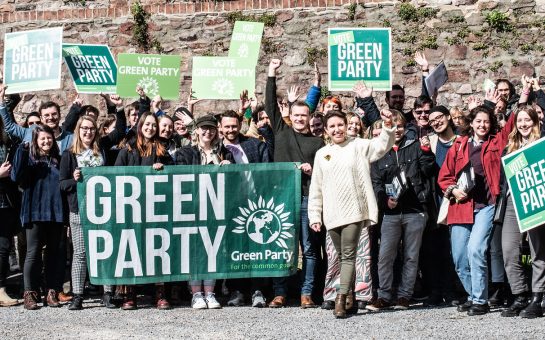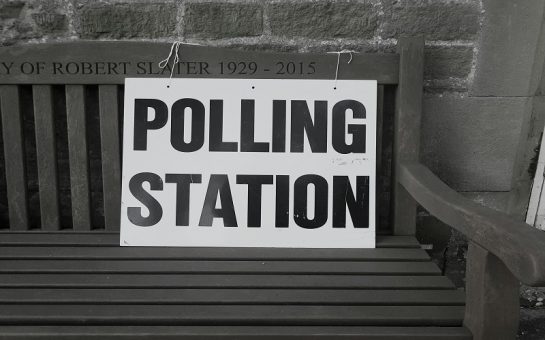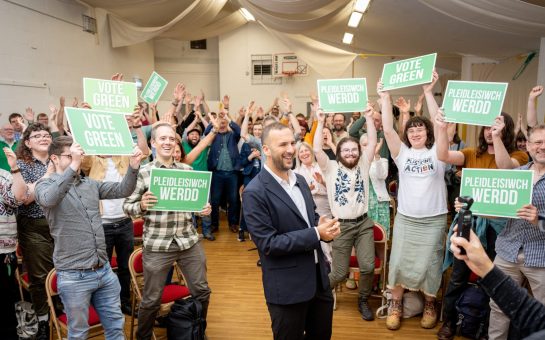Local environment groups say that drastic change is needed to halt the climate crisis, following publication of a report indicating a four-day working week could help.
The report, entitled Stop the Clock: The Environmental Benefits of a Shorter Working Week, specified that alongside wider alterations in how we spend time, such a move would have significant environmental benefits.
This prompted local groups to encourage the large-scale societal shift needed to save the planet, as the G7 met in Cornwall this weekend to make crucial decisions on the climate crisis.
“We can’t keep using the planet as if it’s infinite, because it’s actually not,” said Andrée Frieze, Ham, Petersham & Richmond Riverside Green Party Councillor.
“Our consumer society is not sustainable.”
The report showed that shifting to a four-day working week, without loss of pay, could shrink the UK’s carbon footprint by 127 million tonnes by 2025.
That is more than the entire carbon footprint of Switzerland, or the equivalent of taking almost the entire UK private car fleet off the roads.
Whilst the report showed that reductions in commuting and use of electricity would help the planet, it stressed a shift away from a consumer-driven society would be vital.
It suggested that a four-day week would alter how we spend time and would therefore be an integral part of this, especially if the move were supported by policies promoting lower-carbon activities on the free day.
These include reading, exercising, and spending time with loved ones, activities which could be supported by greater investment in green spaces and improved public transport.
“There is beginning to be a change around the whole concept of work to live, live to earn, and people are beginning to see how important it is that we stop trashing our planet,” added Frieze.
She pointed that the move would have benefits beyond the scope of the report.
For example, one day less commuting would make workers less tired, which normally leads them to make decisions with a more detrimental environmental impact, such as getting ready meals or driving.
According to Frieze, it is our live-to-work reality which ultimately prevents the large-scale attitude reform needed to combat the climate crisis.
“I’d welcome a four-day working week with open arms.
“Just because this is the system that we have, doesn’t mean that it is the right system,” she said.
In fact, 81% of the UK population are either ‘very’ or ‘fairly’ concerned about climate change.
The report suggested that moving to a four-day week would give people more space to make decisions in keeping with their environmental awareness.
Katie Meech, of Merton Climate Action Group, also stressed the need for this shift.
“We are going to have to change our lifestyles massively if we want to reach the government’s net-zero targets,” she said.
“That doesn’t have to be in a bad way, you don’t need to deny yourselves any pleasures, it’s just a shift.”
She gave the example of flexitarianism: moving towards a plant-based diet without committing fully to veganism.
Whilst recognising the importance of the decisions made at conferences such as the G7, she was keen to highlight the impact of individuals.
“People don’t realise how much power they actually do have as individuals.
“Increasingly with the climate emergency, action is going to have to be driven by people locally,” she affirmed.
This is not just in terms of the actions taken to protect the environment, such as switching to electric cars or saving energy around the house, but also in the power held as voters, consumers, and citizens.
Laurie Mompelat, environmental researcher for climate justice organisation Platform and author of the report, said that while their work shows the benefits of this change, there is a long way to go in terms of implementation.
They too stressed that it pointed to a larger need to alter how value is created in society, which would have a positive impact on the environment as a side-effect.
“We need to shift the way we function as a society and depend less on some of the things we are so used to relying on which are actually really bad for the environment,” they said.
They suggested that practically, policies to support the move would be needed to ensure that it is implemented in a way which would benefit everyone.
These included investment in the cultural sector and a push to expand training and learning.
Featured image credit: Lauren Brown Conroy.




